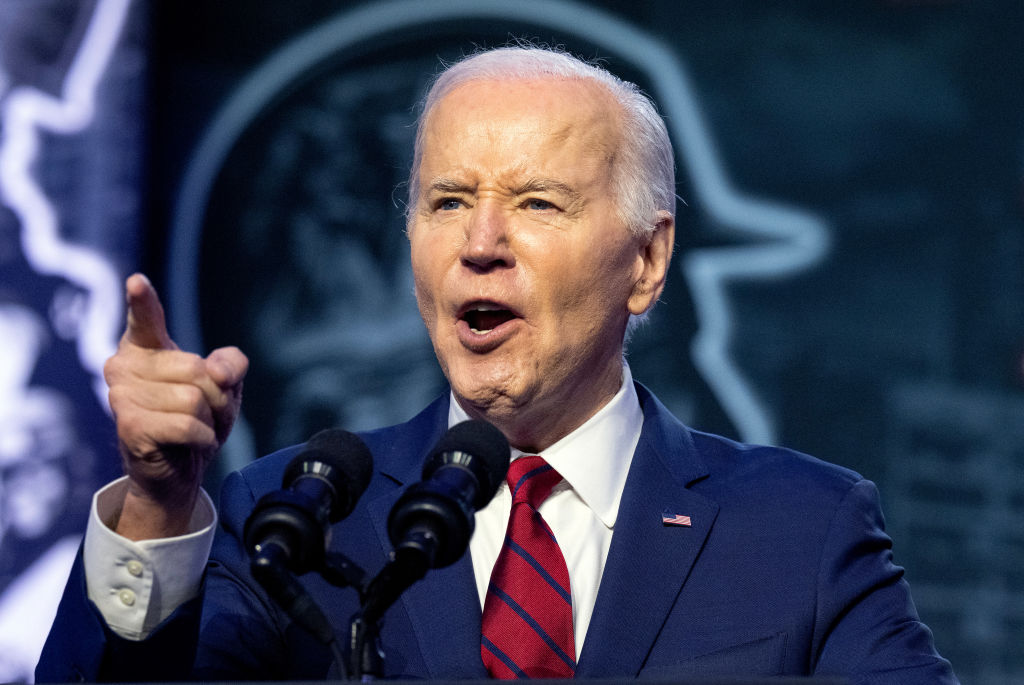Eric Garner’s mother cautions against turning the FDA’s proposed menthol ban into a racial issue.
The FDA’s Proposed Ban on Menthol Cigarettes Sparks Concerns About Racial Disparities
The Food and Drug Administration (FDA) is on the verge of implementing a complete ban on menthol cigarettes, a move that has raised alarm among black community activists and public safety experts. They fear that the illicit markets that will emerge as a result of the ban will disproportionately impact communities of color.
“Menthol has not killed anyone, it’s nicotine,” said Gwen Carr, an activist and the mother of Eric Garner. “If you’re going to ban smoking, don’t make it a racist thing. Ban it all or ban none.”
Debate Over Crime: Trump, DeSantis, and 2024 GOP Hopefuls’ Stance
Advocates against smoking have been pushing for a ban on menthol cigarettes since 2009, when Congress exempted menthol from a ban on flavored cigarettes. The FDA initially considered a ban in 2013 during the Obama administration and resumed the extensive administrative task in 2018. The agency is expected to announce its decision on the menthol ban this month.
Menthol is a natural soothing agent for the throat and airways and is commonly used in cough suppressant medications. In cigarettes and other tobacco products, menthol creates a cooling sensation that makes inhalation easier. According to the Centers for Disease Control and Prevention, menthol can also affect the brain’s processing of taste and pain.
While overall cigarette smoking rates are declining, the decline in menthol cigarette consumption is slower compared to non-menthol tobacco products. Between 2008 and 2019, the total number of cigarettes purchased or shipped for marketing purposes dropped by 36% to 202.9 billion individual cigarettes, according to the Federal Trade Commission. However, menthol cigarettes only decreased by 13% in the same period, reaching 75.1 billion in 2019. As a result, menthol cigarettes now account for a record-high 37% of the total market.
“Studies show that young people who start smoking menthol cigarettes are more likely to become addicted and long-term daily smokers. It’s the only flavored combustible cigarette left on the market, therefore more appealing to youth,” according to the MD Anderson Cancer Center.
However, advocates within the black community are concerned that a ban on menthol cigarettes will disproportionately harm communities of color and other minority groups. In 2019, 85% of black smokers and 48% of Latino smokers preferred menthol cigarettes. Additionally, LGBT individuals, women, and lower-income individuals were more likely to purchase menthol cigarettes than non-menthol products.
Neil Franklin, former chairman of the policy organization Law Enforcement Action Partnership with over 20 years of narcotics policing experience, warned that a ban on menthol cigarettes, which are popular among communities of color, would lead to an increased police response to deal with contraband materials.
“We know for certain prohibition does not work,” said Franklin. “Some of us did not learn from the lessons of alcohol prohibition.”
“If you think law enforcement are not going to get involved, you’re sadly mistaken,” Franklin added.
Franklin and his colleague, Elliot Boyce, formerly of the New York State Police, expressed concerns that a ban would create “violent illicit neighborhood markets” for menthol cigarettes. They also warned that children would be drawn into the sale of contraband cigarettes, similar to patterns seen with other illicit drugs.
In the context of building trust between black Americans and law enforcement, Franklin emphasized, “This is the last thing we need.”
“We have been criminalized enough,” Carr added.
Garner’s death in 2014, after a confrontation with New York City police officers over the sale of single cigarettes on the black market, further highlights the issue. Enforcement of illicit cigarettes in New York became more prevalent after then-Mayor Michael Bloomberg implemented punitive taxes on cigarettes to collect revenue and discourage smoking.
Boyce also pointed out that China is already smuggling contraband tobacco products into the United States, and Chinese and Latin American cartels would easily step in to fill the void caused by an FDA ban.
“[Smoking] is a public health problem,” said Rahn Bailey, former president of the National Medical Association. “[Solving it] with a legal solution … will cause more problems.”
To address the concerns, both public health and law enforcement advocates recommend that the FDA conduct a racial impact study to assess how banning menthol will affect communities of color, including the potential creation of illicit markets. They also suggest increasing funding for education and smoking cessation programs.
“We’re always the last to get treatments,” Carr lamented. “We get the crumbs, and a lot of times, it’s not helping us.”
Click here to read more from The Washington Examiner.
" Conservative News Daily does not always share or support the views and opinions expressed here; they are just those of the writer."





